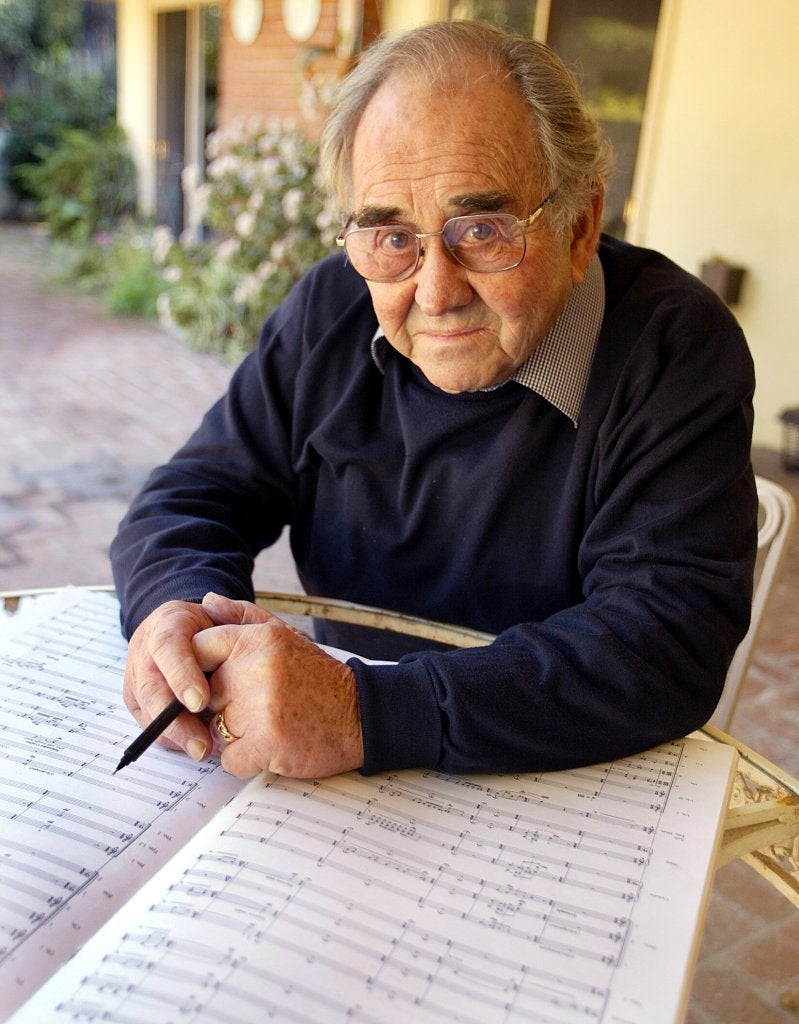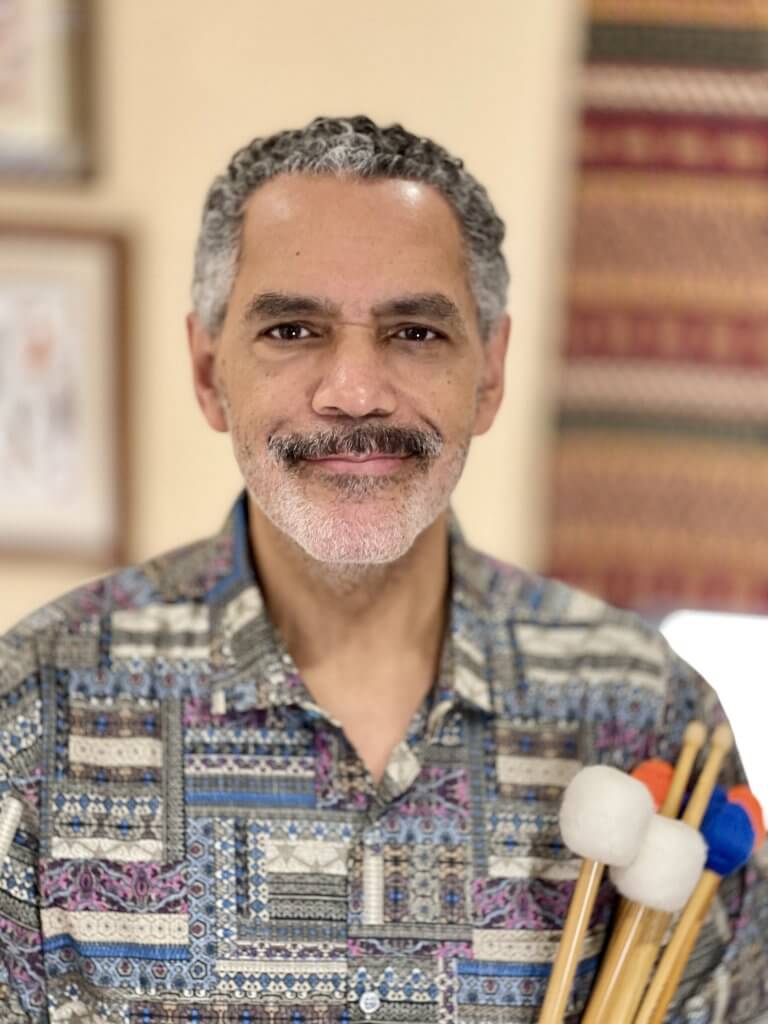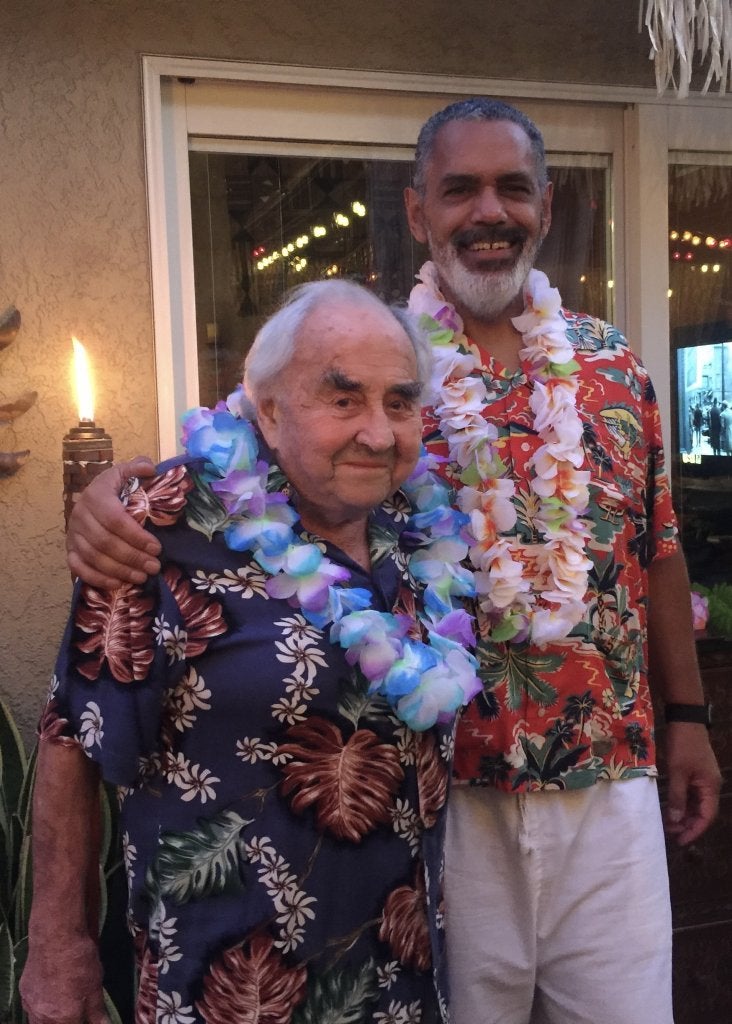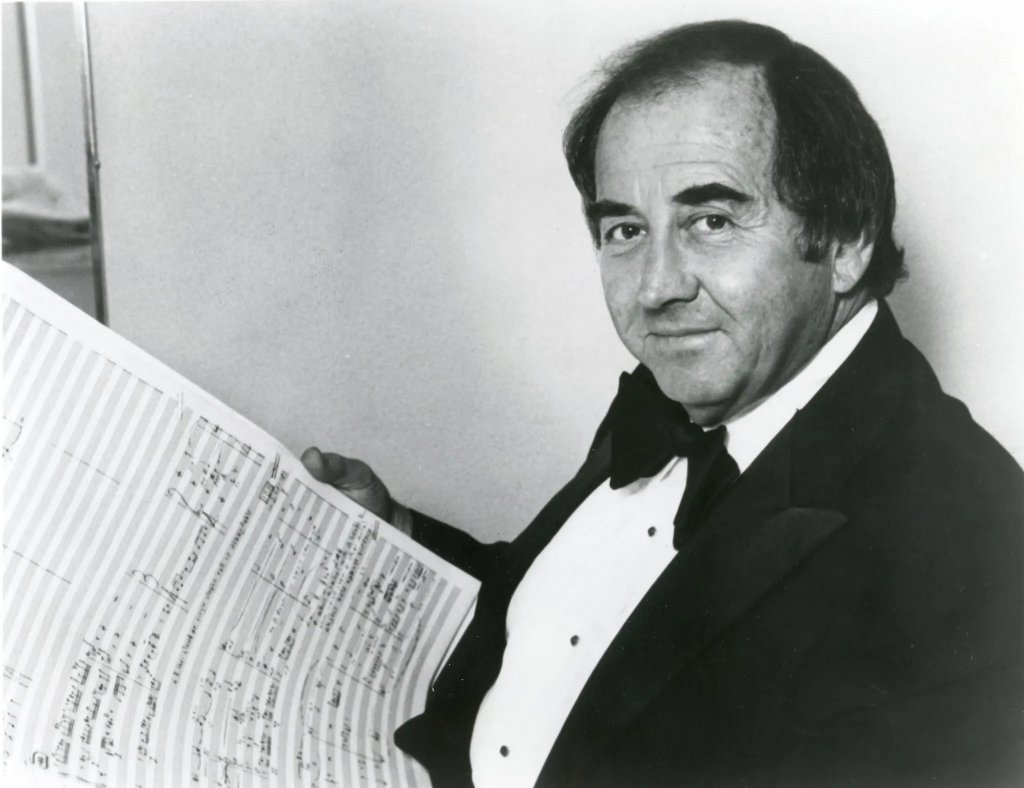On Saturday, October 1, The UCLA Herb Alpert School of Music will host a celebration of William Kraft. Kraft, who taught composition at UCLA in the 1980s after a thirty-year career in the Los Angeles Philharmonic, was an indispensable feature of Los Angeles’s vibrant new music scene in the post-World War II era.

“Bill was a hub,” said Gloria Cheng, who teaches contemporary music and piano performance at UCLA. She spoke roundly of Kraft’s titanic, if often understated, influence on art music. “I looked up his participation in the Monday Evening Concerts, and Bill is on the program no fewer than 54 times, as a performer, conductor, or composer.”
The Monday Evening Concerts served up a legendary program of new music after its founding in 1939, featuring in its early years music by Hindemith, Charles Ives, Schoenberg, Stravinsky and others. Kraft appears first on the programs in 1957, playing vibraphone in Pierre Boulez’s Le Marteau sans Maître. In 1958, Kraft’s Theme and Variations for Percussion Quartet debuted.
It was only the beginning. Kraft’s electric style of percussion playing dazzled LA Philharmonic Zubin Mehta, who often put him front and center in performances. Kraft was Stravinsky’s go-to percussionist. Kraft’s compositions attracted noticeable attention by avant-garde music directors. Kraft became the LA Philharmonic’s first composer-in-residence in 1981, and founded the LA Philharmonic’s new music group, establishing its vibrant Green Umbrella Series.
“He was the last of that generation of LA musicians who were involved in new music, studio music, film music—everything,” said Neal Stulberg, director of orchestral studies at UCLA. John Steinmetz, bassoonist at UCLA, concurred. “The boundaries were porous in those days. The studio musicians wanted to play avant-garde music. They devoured it. So did Bill. Those working musicians, they weren’t interested in artificial boundaries between serious and non-serious music.”
Kraft did his part to dissolve barriers, composing music for film as well as for new music enthusiasts. Remarkably, percussionist Raynor Carroll recalled seeing Kraft perform with the LA Philharmonic in his Pasadena high school auditorium. “It’s hard to imagine, but as a high school student, I saw Zubin Mehta and the LA Phil perform at an assembly,” said Carroll. “I was blown away. Bill Kraft was playing percussion, and I thought ‘I want to do that, I can probably do that.’”

Carroll was right. He studied at Cal State LA before joining the LA Philharmonic as co-principal percussionist/timpanist in its 1983-84 season. He and Kraft would go on to be great friends.
“He was so accomplished, but always so humble, so curious,” recalled Carroll. “There was always a twinkle in his eye. I’m honored that his wife Joan asked me to put together this celebration at UCLA.”
Kraft met his wife, Joan Huang, at UCLA. She was completing a PhD in composition and Kraft was on the faculty. She would go on to be an accomplished composer in her own right, and her own warmth and personal generosity was inspirational as well.
“Joan is like a sister to me,” said Gloria Cheng. “We all met regularly for dinner, when Bill always tell his war stories about Stravinsky and Schoenberg. But Bill was knowledgeable about many topics. Visits were very personal, enlightening affairs.” John Steinmetz remembered much the same thing. “Bill was a great storyteller,” he recounted. “And he had a lot of stories to tell. It was always such a joy to be around him.”
Kraft’s compositions have staying power. His Timpani Concerto No. 1 has become standard in the repertory. His recordings of musical explorations of duets with percussion and various instruments pushed musical boundaries while remaining accessible, even conversational or lighthearted.
“Bill composed new sounds for instruments, but he did so with a performer’s perspective in mind,” said Stulberg. “I remember him talking about a piece he wrote for the tubist Roger Bobo. He talked with Roger about what the tuba could do. He wrote a piece that really expanded what was expected of the tuba, but was respectful of the instrument and its own sound.”
“Kraft’s compositions for percussion inspired me when I was young,” said Raynor Carroll. “I just got through playing a tour in Europe. All these orchestras have new music ensembles. That was something that Bill started with the LA Philharmonic. He was a trailblazer.”
For Carroll, the October 1 celebration of William Kraft’s life is as much about the man as his musical legacy. The event is meant not just as a concert, although you will hear Kraft’s music, and not quite a memorial, but a real celebration.
“I know Bill is up there, looking at us down here,” said Carroll. “And smiling.”

A Celebration of William Kraft will be held at Schoenberg Hall on Saturday, October 1, 2022, at 2:00 p.m. It will also be livestreamed.
